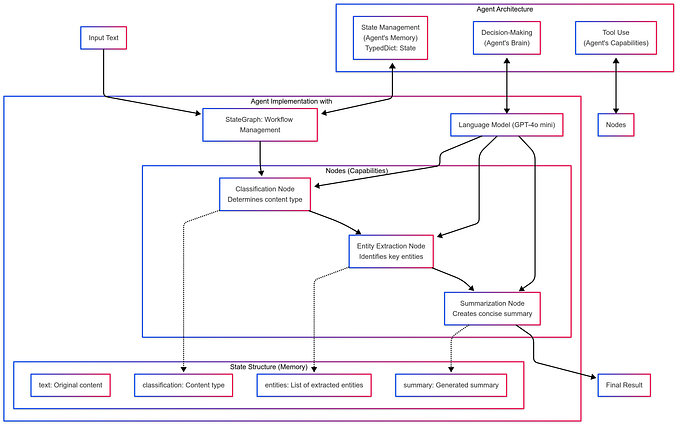
In the dynamic landscape of e-commerce, where user experience plays a pivotal role, optimizing the performance of a Magento website is paramount. As a robust and feature-rich platform, Magento offers extensive capabilities for online businesses. However, strategic methods and meticulous Magento development practices are essential to fully harness its potential and fully deliver a seamless online experience.
This article delves into the intricate realm of “Methods to Enhance the Performance of a Magento Website,” exploring a spectrum of techniques that, when implemented through skilled Magento development, can significantly elevate the speed, efficiency, and overall performance of your e-commerce platform. From hosting infrastructure to code optimization and from content delivery to regular maintenance, understanding these methods is pivotal for businesses aiming to unlock the full potential of their Magento-based online presence. Join us to explore the nuanced strategies that, when guided by adept Magento development expertise, pave the way for an enhanced and responsive e-commerce experience.
Why does Magento get Slow?
Complexity of the Platform:
- Magento is a feature-rich e-commerce solution offering a wide array of functionalities.
- The richness of features contributes to increased complexity, potentially leading to slower loading times.
Dynamic Content and Database Queries:
- E-commerce websites, including those built on Magento, involve numerous dynamic elements such as product listings, categories, and user interactions.
- The high volume of dynamic content and database queries can strain server resources, resulting in delays in page rendering.
Inadequate Hosting Infrastructure:
- Choosing a hosting provider with insufficient resources or incompatible server configurations can hinder Magento’s performance.
- Investing in a hosting solution that aligns with Magento’s requirements is crucial for ensuring optimal server resources, database settings, and caching mechanisms.
Unoptimized Code:
- Cumulative unoptimized code from customizations or extensions can increase the time it takes for the server to process requests.
- Regular code reviews and optimization efforts are necessary to ensure efficient execution and reduce response times.
Large Media Files:
- Large media files, such as images and videos, can burden the server and contribute to slow page loading times.
- Compressing images, leveraging lazy loading, and optimizing multimedia content are essential for improving website speed.
Excessive Third-Party Extensions:
- Unnecessary or poorly coded third-party extensions can negatively impact performance.
- Careful selection and periodic auditing of extensions can minimize conflicts and ensure smoother operation.
Understanding and addressing these factors through systematic optimization efforts, regular maintenance, and strategic choices in hosting and extensions are critical for overcoming the challenges associated with Magento’s performance.
Related Article: Vue Storefront or Magento — What Should You Choose?
Effective Ways to Enhance the Performance of a Magento Website
Enhancing the performance of a Magento website is crucial for providing a seamless user experience and optimizing the overall functionality of the e-commerce platform. Here’s a detailed exploration of strategies to improve a Magento website’s performance:
Optimized Hosting Infrastructure:
- Choose a reliable hosting provider that specializes in Magento hosting.
- Ensure the hosting plan offers sufficient resources to handle the website’s traffic and data, including RAM, processing power, and storage.
Content Delivery Network (CDN) Implementation:
- Integrate a CDN to distribute content across multiple servers globally.
- This reduces server load, minimizes latency, and accelerates content delivery to users, especially those geographically distant from the hosting server.
Caching Mechanisms:
- Implement full-page caching to store pre-rendered HTML pages, reducing the need for dynamic content generation.
- Leverage browser caching to store static assets locally on users’ devices, improving subsequent page loads.
Optimized Images and Media:
- Compress and resize images to reduce file sizes without compromising quality.
- Implement lazy loading for images, loading them only when they come into the user’s viewport, enhancing page loading speed.
Minification of CSS and JavaScript:
- Minimize and combine CSS and JavaScript files to reduce the number of server requests.
- Remove unnecessary spaces, comments, and line breaks to optimize file sizes.
Database Optimization:
- Regularly clean up and optimize the Magento database to eliminate redundant or unused data.
- Indexing should be configured and maintained correctly to speed up database queries.
Code Optimization:
- Conduct regular code audits to identify and eliminate inefficient or redundant code.
- Optimize custom code, themes, and extensions to align with best practices and Magento standards.
Upgrade to the Latest Version:
- Stay current with Magento releases to benefit from performance improvements and security updates.
- Ensure that all extensions and customizations are compatible with the latest version.
Monitoring and Analytics:
- Implement monitoring tools to track website performance, identify bottlenecks, and address issues promptly.
- Use analytics to understand user behaviour and optimize the website based on usage patterns.
Load Testing:
- Perform load testing to simulate various levels of user traffic and identify performance thresholds.
- Use the insights gained to scale resources and ensure the website can handle peak loads without degradation.
By systematically addressing these aspects, website administrators can significantly enhance the performance of their Magento websites, creating a more responsive and efficient online shopping experience for users. Regular maintenance and optimization efforts are vital to sustaining improved performance over time.
Conclusion
In conclusion, optimizing the performance of a Magento website is a multifaceted process that requires a strategic and holistic approach. By addressing factors such as hosting infrastructure, content delivery, caching mechanisms, media optimization, code efficiency, and regular maintenance, businesses can ensure a seamless and responsive user experience. Moreover, staying abreast of the latest Magento releases, employing analytics for informed decision-making, and conducting load testing contribute to the ongoing success of an e-commerce platform.
Consider hiring Magento developers for businesses seeking comprehensive performance enhancement and tailored solutions. These skilled professionals possess the expertise to implement the strategies above effectively, ensuring that the website meets and exceeds performance expectations. With the assistance of dedicated Magento developers, businesses can navigate the platform’s intricacies, stay updated with industry best practices, and continually optimize their online presence for maximum efficiency and customer satisfaction. Invest in the expertise of Magento developers to unlock the full potential of your e-commerce venture and deliver an unparalleled user experience.









